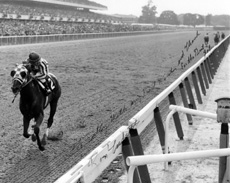 On May 9, I posted parts of an article I had written based on my interview with Ron Turcotte, the jockey who rode Secretariat, among other great Thoroughbreds. In the midst of Triple Crown season, I thought it would be interesting to revisit the interview. Here is some more:
On May 9, I posted parts of an article I had written based on my interview with Ron Turcotte, the jockey who rode Secretariat, among other great Thoroughbreds. In the midst of Triple Crown season, I thought it would be interesting to revisit the interview. Here is some more:
Ron Turcotte missed a ride on Shuvee in the 1971 Jockey Club Gold Cup because he was at Laurel Race Course guiding Riva Ridge to victory in the Laurel Futurity. It was one of five stakes wins that year for the colt that would be named two-year-old champion.
“Riva Ridge was my favorite horse because when I first started riding him, he was very timid,” said Turcotte. “I schooled him for a month and taught him that other horses weren’t going to hurt him. Once I was through, I could do anything with him.”
Riva Ridge was trained by Lucien Lauren for Penny Chenery, whose father owned Meadow Stables. Riva Ridge won the Hibiscus and Blue Grass Stakes in preparation for the Kentucky Derby, then cruised to a three-quarter victory on Derby Day. It was Turcotte’s first Kentucky Derby win and one of his fondest memories.
“He was as easy a horse to ride as there was and I loved him,” said Turcotte. “On a fast track, he could beat anything except Secretariat.”
While Turcotte was riding 3-year-old Riva Ridge, he also got the mount on another Meadow Farm youngster, a 2-year-old son of Bold Ruler named Secretariat.
“When I first got on him, I was surprised that a horse could be so bold as a 2-year-old,” Turcotte remembered. “Nothing bothered him and he never spooked. The other colts could bump into him and he didn’t care. You could have headed him toward a brick wall and he probably would have gone through it.”
At the conclusion of his first season, Secretariat was named Horse of the Year and syndicated for more than $6 million. But after a defeat by Sham in the Wood Memorial Handicap, before the Kentucky Derby, Secretariat had some detractors.
“He was the type of horse that ran real strong against the bit,” Turcotte noted. “But in the Wood Memorial, every time I pulled on the reins, he would throw his head.”
As it turned out, Secretariat had an abscess on his lip that caused pain when Turcotte pulled on the bit.
That loss haunted Turcotte even as he napped in the jockeys’ quarters, just hours before the Kentucky Derby, and felt himself pull on Secretariat’s reins with no response. The dream was so vivid, that he heard the announcer call out Sham as the winner.
“That woke me up with a start,” Turcotte said. “They were replaying the Wood Memorial on the TV monitor. I thought, thank God, it was just a dream. I was so confident that I was going to win the race that I couldn’t believe it.”
In the Kentucky Derby, Secretariat ran every quarter of a mile faster than the previous one, shattering all previous records, and defeated Sham by 2 1/2 lengths. With the victory, Turcotte became the first rider in 71 years to claim back-to-back Kentucky Derby wins, and the triumph was all the more sweet because of the Wood Memorial loss.
“The other two times he lost, I knew he was going to get beat before the races,” Turcotte admitted. “One time he wasn’t ready and the other time he was sick. But in the Wood Memorial, I didn’t know what had happened. Had I known about the abscess before the race, I would have won.”
In the Preakness Stakes, Secretariat made his move after the first half-mile, moving from last to first in unofficial record time (he was clocked by two timers at 3/5 of a second under the record and an effort has been underway to officially credit him for the feat). As a coup de gras, he won the Belmont Stakes in record time (photo), without urging, 31 lengths in front of his closest rival.
“It was liking riding Pegasus, the horse with wings,” said Turcotte. “He was just flying, but he was doing it very easy, just galloping. It was incredible.
“Records are made to be broken,” he added. “But there will never be another Triple Crown such as that one. It will never be duplicated in the sense of another horse breaking all three track records, and with the sense of three dimensions – three styles of racing – one win from last to first, one from last to first at the halfway point, and the other win first all the way.
“When Secretariat was right, he was unbeatable.”
